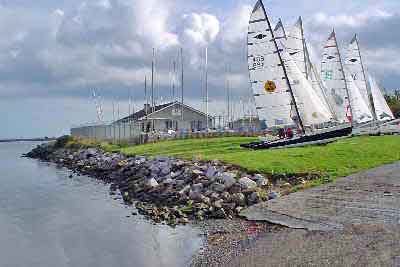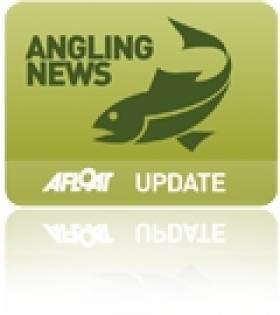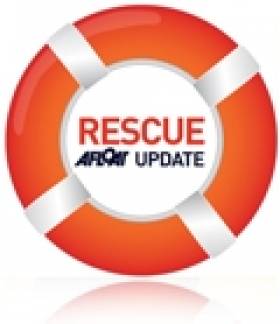Displaying items by tag: Swords
Big Names Join Cast for Ireland Angling Show 2013
#ANGLING - The Ireland Angling Show will be back at the National Show Centre in Swords for its 14th year on the weekend of 16-17 February 2013, bringing a host of big names to the capital to share their fishing knowledge.
Special guest for 2013 is sea angling expert and freelance angling journalist Mike Thrussell. No stranger to Irish waters, Mike will be sharing his knowledge and skill with demos and workshops over the weekend.
Bob Nudd MBE, another regular visitor to Ireland, will be part of the show team for 2013. Bob is well known as being one of the UK’s greatest anglers, with an extensive list of championship titles behind him. He's also a familiar face on TV, with years of presenting on Discovery Shed.
Joining them is Henry Gilbey, a fishing photographer, writer, TV presenter and consultant by trade - but at heart he’s an out-and-out fishing junkie with a very serious obsession with saltwater fishing in Ireland. Henry writes and photographs for fishing magazine all around the world, has presented four fishing TV series for Discovery and has just seen the launch of his third fishing book.
Returning for a third year will be the ever-popular Hywel Morgan and his talented daughters Yasmin and Tanya. Hywel is a world fly casting champion and has fished competitively the world over, winning numerous titles. Hywel also a has an impressive background in TV fishing shows.
Professional guide, fly casting instructor and angling writer Paddy McDonnell will be giving some talks at the show on fly fishing for salmon. The mystique that is sometimes associated with fly fishing for salmon can be daunting, especially for beginners, so this format will cater for anglers of all levels of experience.
A host of well-known angling experts will also be available with demos and presentations on every aspect of angling, whether sea, game or coarse.
Always a central feature at the Ireland Angling Show is the interactive family area, expertly managed by the very knowledgable Dublin Angling Initiative and their dedicated team.
Children of all ages and experience can learn everything they need to know to take up fishing, such as learning how to set up a fishing rod, tie a fishing knot and put bait on a hook. Many of Ireland’s most experienced and well known anglers will be present to give freely of their time, knowledge and expertise.
And as ever there will be a huge selection of tackle and trade stands offering products to suit every budget.
Organisers Mara Media have also announced that the show will coincide with the Irish Specimen Fish Committee Awards Day.
As previously reported on Afloat.ie, the awards will be held on Saturday 16 February 2013 at the Bewley's Airport Hotel. There will be a free shuttle bus running between the hotel and the angling show, as well as special room rates for anglers travelling to either event.
For more information and how to book your tickets visit www.irelandanglingexpo.ie.
Flood Evacuation Exercise in Fingal This Weekend
Members of the public are invited to attend a major flood evacuation training exercise this Saturday at Broadmeadow Esturary in Swords, Co Dublin.
Rescue and boat rescue crews from the Irish Coast Guard are sceduled to join teams from the Dublin Fire Brigade, the Civil Defence Fire Service and Gardaí in the exercise, which will simulate the rescue of a group of people stranded after a flash flood.
The crews will test water rescue and river search procedures, with an emphasis on general water safety and providing assistance to other search and rescue agencies.
The excercise will begin at 11am on Saturday 16 April and will last for one hour. Members of the public are welcome to observe must must obey any instructions and must not interefere with the exercise.
For more information contact Bill Powderly, assistant chief Civil Defence officer with responsibility for the Fingal Area, at [email protected] or 086 380 5197.
Swords Sailing and Boating Club
Swords Sailing & Boating Club
 Located Halfway between Malahide and Swords, near the main Belfast road. Season runs from March to December. Very active dinghy programme – and a very active club for both the young and the young at heart!
Located Halfway between Malahide and Swords, near the main Belfast road. Season runs from March to December. Very active dinghy programme – and a very active club for both the young and the young at heart!
We have grown from humble beginnings, operating from a cargo container, to become a well established club boasting four national champions in different fleets in the one year!!
Racing every Sunday at 2pm and Wednesdays at 7.30. Friendly family Orientated club. New members always welcome.
Swords Sailing & Boating Club, c/o Donal Brennan, Broadmeadow Estuary, Swords, Co Dublin. Tel: 01 8454 686, email: [email protected]
Have we got your club details? Click here to get involved






























































